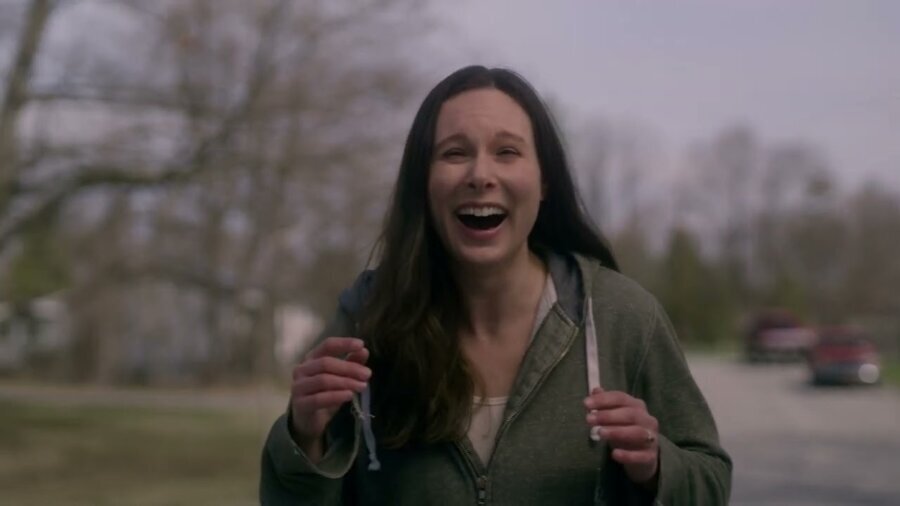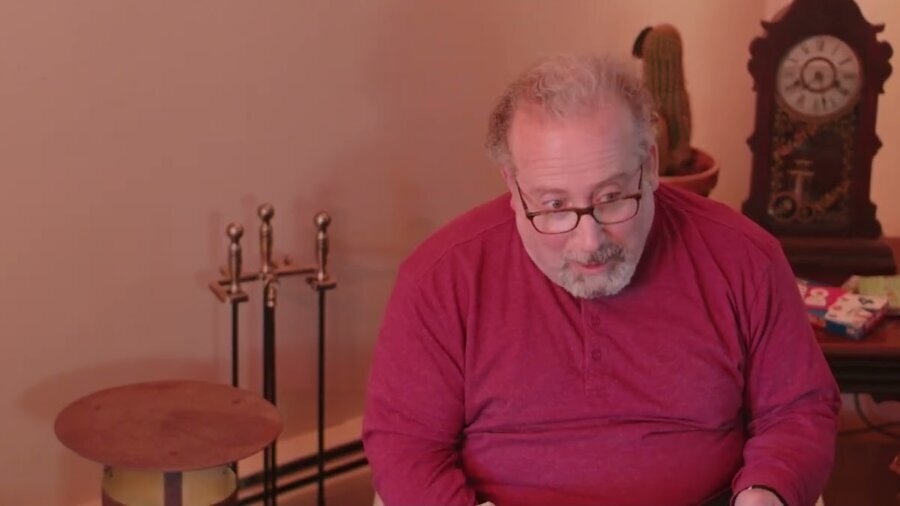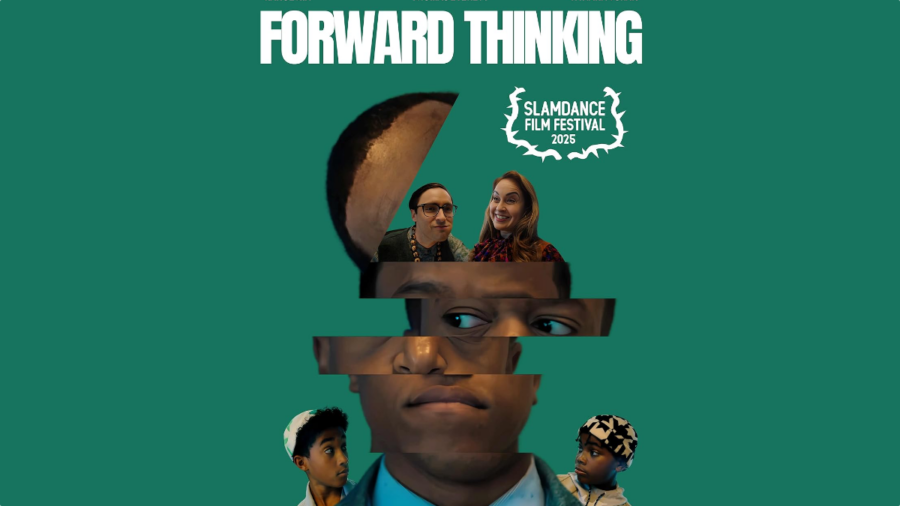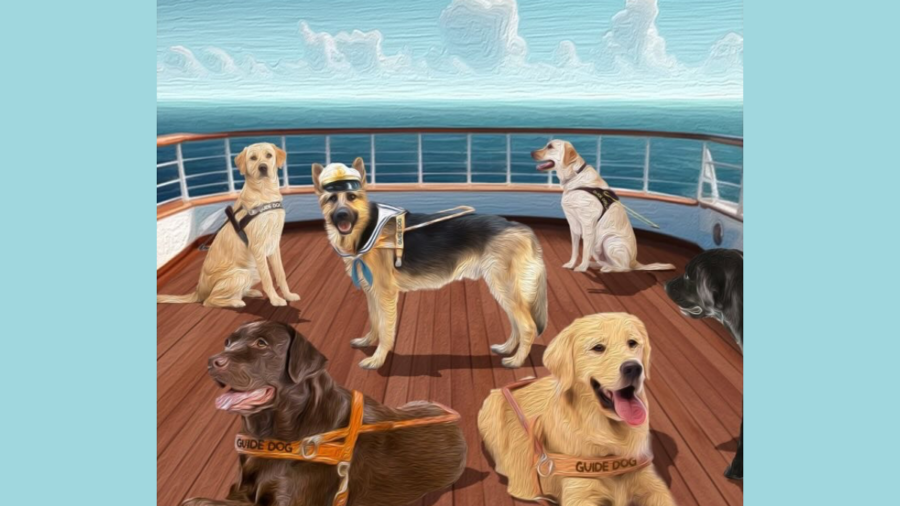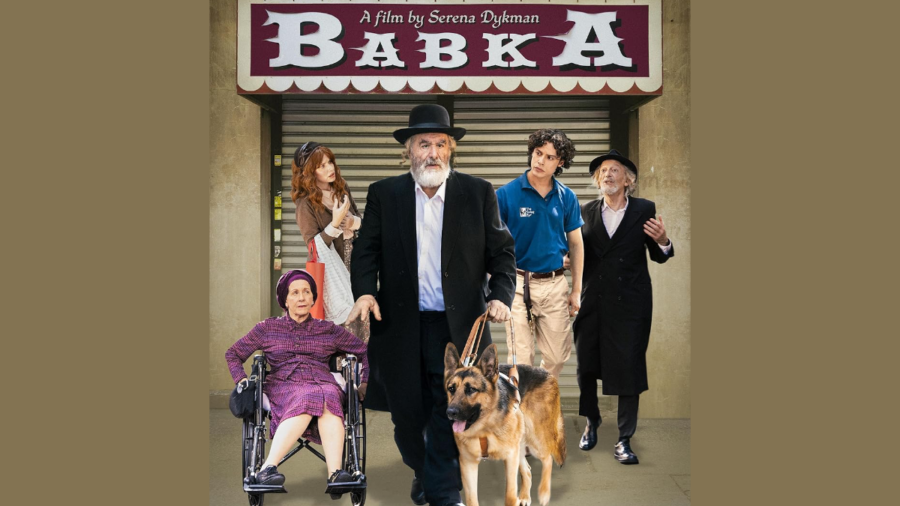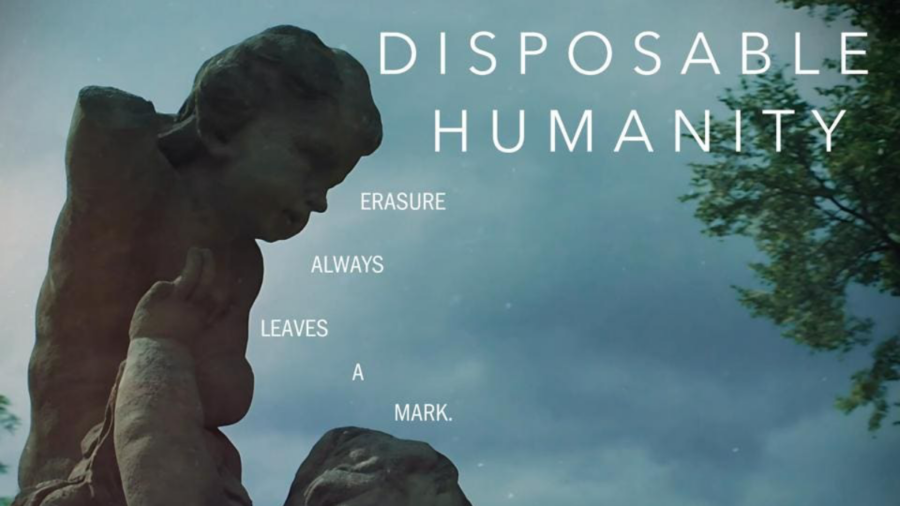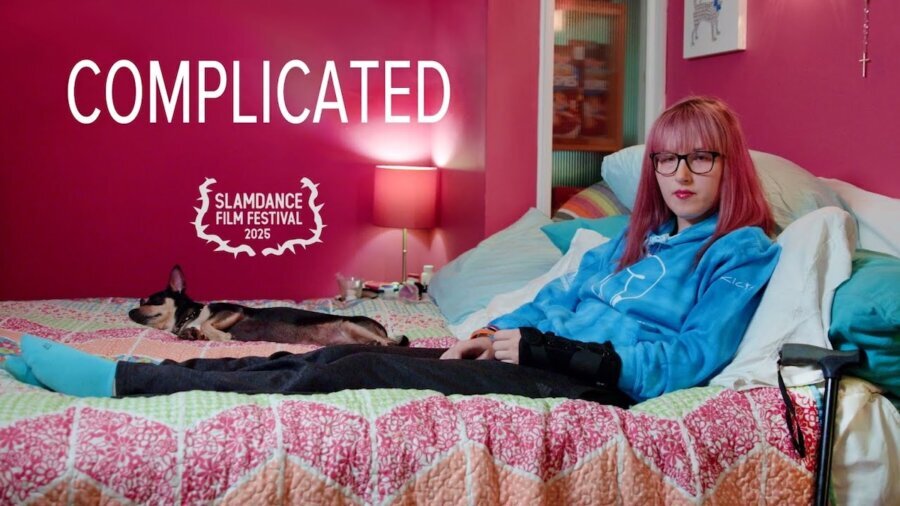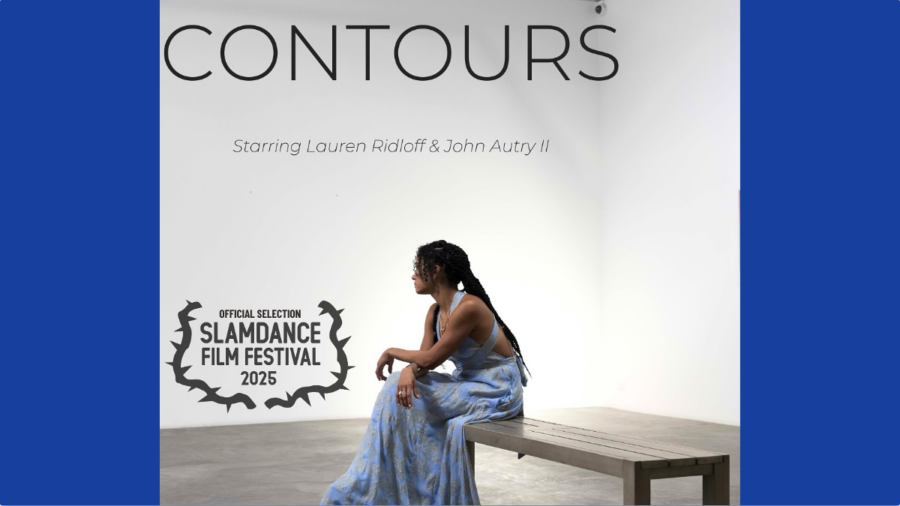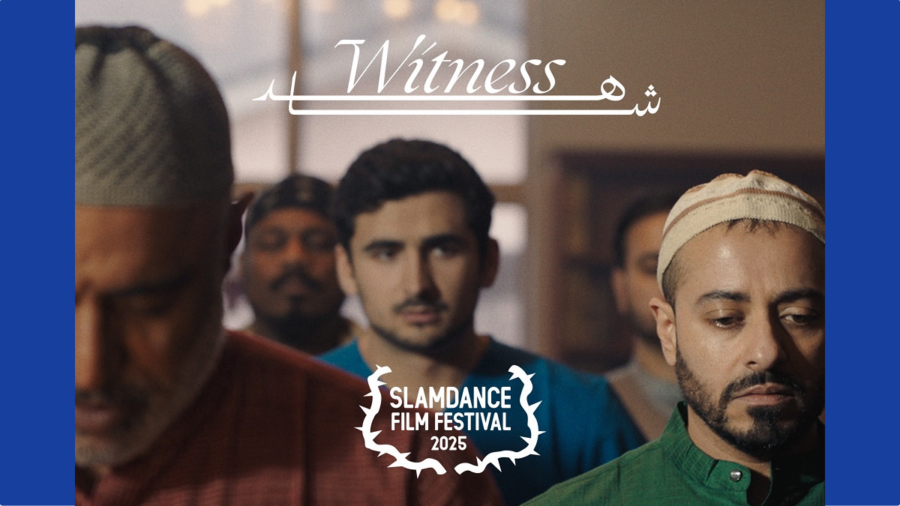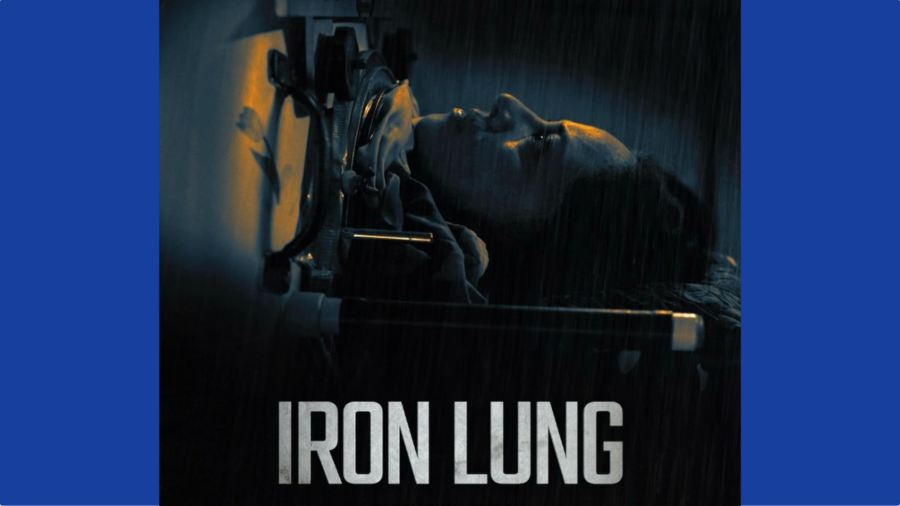Microaggressions are unfortunately something many people are familiar with, the disability community included. Constantly navigating uncomfortable conversations with strangers, and sometimes even people close to us. But what happens when constant verbal combat becomes too much? “Don’t Take This the Wrong Way” explores this question, telling the story of how this emotional toll leads to unraveling for the main character, Darcy. [continue reading…]
Reviews of Disability Inclusive Content
“Nightmare” Blurs Dream from Reality
Have you ever had one of those moments where you are not sure if you are dreaming, or worse – having a nightmare? That queasy uncertainty pervades within the short film, “Nightmare,” directed by Zach Damon. In five suspenseful minutes, Damon pulls viewers into a creepy realm where folklore, fear, and reality are mixed. [continue reading…]
Discomfort Sits Alongside Comedy in “Forward Thinking”
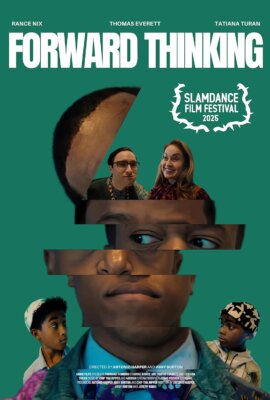 Watching “Forward Thinking” feels like peering into an off-kilter, adjacent reality.
Watching “Forward Thinking” feels like peering into an off-kilter, adjacent reality.
The film opens on a crowded bulletin board, with a tan-colored flyer sitting front and center of the frame. The flyer, written using friendly Comic Sans, is titled “Coffee with Cops,” and offers the chance to meet with officers at a local park “at 2 p.m. this Friday.” It features photos of two smiling white cops – one woman, one man – with speech bubbles hanging over each of their heads. The former’s reads: “We don’t all have domestic assault allegations;” the latter’s “Grab a cup o’ joe with the guy that put away your favorite schmo!”
Cut to James, a black man, looking at the flyer with an expression that shifts between surprised and perplexed. [continue reading…]
Short Film “At See:” Navigating Inclusion with Guide Dogs on the Open Sea
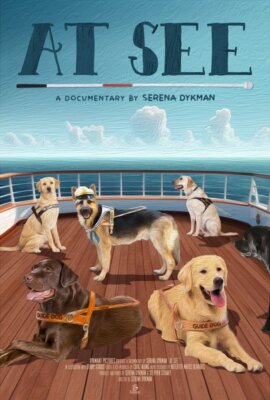 In the short film “At See,” Director Serena Dykman offers a glimpse into inclusion by taking viewers aboard an All Paws on Deck cruise to the Dominican Republic with more than 50 guide dogs and their partners. This opportunity was organized by the non-profit organization, All Paws On Deck, to provide an independent cruise experience for blind and partially sighted people with their guide dogs to enjoy.
In the short film “At See,” Director Serena Dykman offers a glimpse into inclusion by taking viewers aboard an All Paws on Deck cruise to the Dominican Republic with more than 50 guide dogs and their partners. This opportunity was organized by the non-profit organization, All Paws On Deck, to provide an independent cruise experience for blind and partially sighted people with their guide dogs to enjoy.
As the first documentary to feature Open Audio Description as part of its storytelling, “At See” opens by introducing viewers to an audio description narrator, Nefertiti Matos Olivares, a blind Latina woman. Upbeat Latin dance music sets the scene as the short transitions from meeting Olivares to a cruise ship sailing the ocean before transitioning to focusing on the dogs. [continue reading…]
“BABKA” Tackles Intersectional Challenges of Disability and Culture
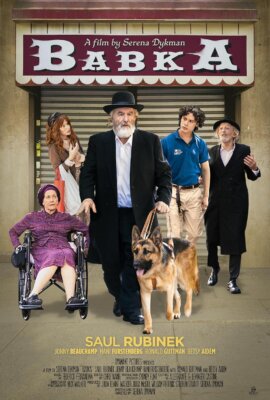 In the new short film “BABKA,” Director Serena Dykman presents a narrative that weaves together themes of identity, culture, and passion. The film centers on Moishe, a blind Orthodox Jewish baker who lives in the heart of Hasidic Williamsburg, Brooklyn. After recently losing his sight, Moishe is learning to navigate a new way of life as he re-opens his community’s beloved bakery. With the help of Jesus, a service dog trainer, Moishe adjusts to using his new guide dog, Bear.
In the new short film “BABKA,” Director Serena Dykman presents a narrative that weaves together themes of identity, culture, and passion. The film centers on Moishe, a blind Orthodox Jewish baker who lives in the heart of Hasidic Williamsburg, Brooklyn. After recently losing his sight, Moishe is learning to navigate a new way of life as he re-opens his community’s beloved bakery. With the help of Jesus, a service dog trainer, Moishe adjusts to using his new guide dog, Bear.
The film explores the complexities that Moishe faces with his new disability in the tension between his personal needs and the religious culture of his tight-knit Orthodox community. Since the customs of Moishe’s community do not permit owning a dog, it creates conflict as he strives to return to his love of baking for his community while balancing the cultural and religious pressures around him. [continue reading…]
New Documentary “Disposable Humanity” Shines Spotlight on Nazi Attacks on Disabled People
Film Takes Home Two Slamdance Awards, Underscoring Relevance of Film Today
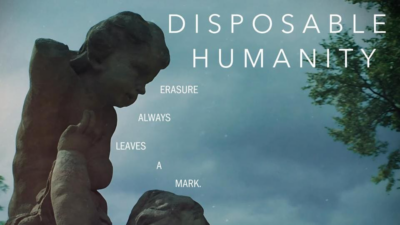 Cameron S. Mitchell’s documentary feature Disposable Humanity premiered during the 2025 Slamdance Film Festival in Los Angeles. This film took home the 2025 Slamdance Unstoppable Feature Honorable Mention as well as a 2025 Audience Award, voted on by Slamdance attendees, underscoring the relevance of the film today.
Cameron S. Mitchell’s documentary feature Disposable Humanity premiered during the 2025 Slamdance Film Festival in Los Angeles. This film took home the 2025 Slamdance Unstoppable Feature Honorable Mention as well as a 2025 Audience Award, voted on by Slamdance attendees, underscoring the relevance of the film today.
Disposable Humanity examines the Nazi-run Aktion T4 program, which began in 1939. By 1945, Nazis had murdered more than 300,000 disabled people. [continue reading…]
“Complicated” Sheds Light on Families’ Complex Medical Trauma
“I have pain in every part of my body.”
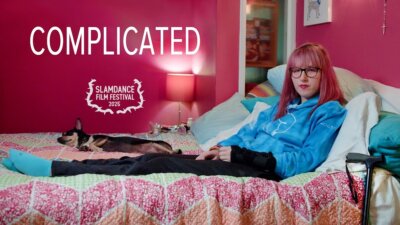 Filmed over the course of seven years, Complicated is a documentary directed by Andrew Abrahams that follows several young people living with Ehlers-Danlos Syndrome (EDS), a connective tissue disorder that causes the body to produce faulty collagen. Karen, one of the film’s subjects, explains it this way:
Filmed over the course of seven years, Complicated is a documentary directed by Andrew Abrahams that follows several young people living with Ehlers-Danlos Syndrome (EDS), a connective tissue disorder that causes the body to produce faulty collagen. Karen, one of the film’s subjects, explains it this way:
“Say you have to build a sturdy Popsicle stick house. You’re better off using a hot glue gun than Elmer’s glue—because with Elmer’s glue, your Popsicle stick house will surely fall apart. Whereas with a hot glue gun, once it’s together, it stays together. I’m built with Elmer’s glue—not strong glue—that falls apart easily. So, Ehlers Danlos Syndrome is when connective tissue is defective and so your whole body falls apart.”
Complicated is an unflinching window into what it means to navigate life with a complex chronic illness, not just for those diagnosed but for their families as well. The stories in the film are deeply interwoven—just as they were in real life. Many of the young people featured in Complicated connected with each other through the shared challenges of living with EDS. [continue reading…]
New Short Film “Contours” Examines Human Connections
 Expertly crafted by a seasoned team of trailblazers comes Contours, a truly beautiful short film about two people feeling the weight of time lost and the invisible distance forming between them.
Expertly crafted by a seasoned team of trailblazers comes Contours, a truly beautiful short film about two people feeling the weight of time lost and the invisible distance forming between them.
Viewers are welcomed into an art gallery where Spirit (Lauren Ridloff) and Van (John Autry II) are in their own emotional experiment to find each other, causing a spark and igniting passion. Their energy blends seamlessly with the thought-provoking images around them, taking them from a place of chance meetings and subtle smiles to the reality of life passing and devotion diminished, as if the meanings of the paintings somehow dripped off the canvas and played it out in front of them, harmonizing their vulnerabilities. The art that adorns the walls of the museum, combined with the artistry in the chemistry between the characters, creates an intimate narrative mix of sincerity and excitement, longing and meaning between two people and their purpose to one another. [continue reading…]
Radha Mehta and Her Team Explore Identity and Acceptance in New Short Film “Witness”
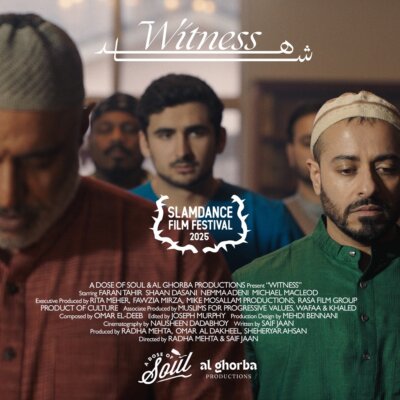 The short film Witness opens with a ringing phone, just as a wedding ceremony “nikah” is about to take place in a masjid. The groom, Saleem, gives a sheepish grin as the call goes to voicemail—his witness is unavailable. The imam, the bride, and the bride’s father exchange exasperated glances before Imam Mustafa steps away to find their second male witness.
The short film Witness opens with a ringing phone, just as a wedding ceremony “nikah” is about to take place in a masjid. The groom, Saleem, gives a sheepish grin as the call goes to voicemail—his witness is unavailable. The imam, the bride, and the bride’s father exchange exasperated glances before Imam Mustafa steps away to find their second male witness.
In the kitchen, his daughter, Miral, and her friend, Shams, are preparing donation boxes. When Imam Mustafa asks Shams to step in as the second male witness, he hesitates. His reluctance is clear, but the imam brushes it off. Miral and Shams share a weighted glance before he follows the imam back to the ceremony. [continue reading…]
Short film “Iron Lung” Tackles Powerlessness In More Ways Than One
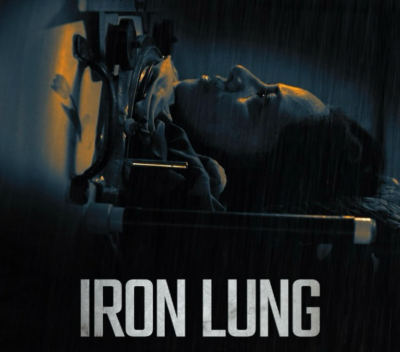 Polio. Iron lungs. These one-time commonalities from a bygone era play a central role in Director Andrew Reid’s short film, Iron Lung.
Polio. Iron lungs. These one-time commonalities from a bygone era play a central role in Director Andrew Reid’s short film, Iron Lung.
Set in New Mexico in 2002, and revolving around two sisters, Norma and Luisa Peña, the film opens on a shot of a darkened sky with heavy rain falling outside the window, flashes of lightning, cracks of thunder, and a radio announcing “record rainfall,” “flash flooding,” and recommendations to “shelter in place, and not attempt travel unless your life is in immediate danger.” [continue reading…]


